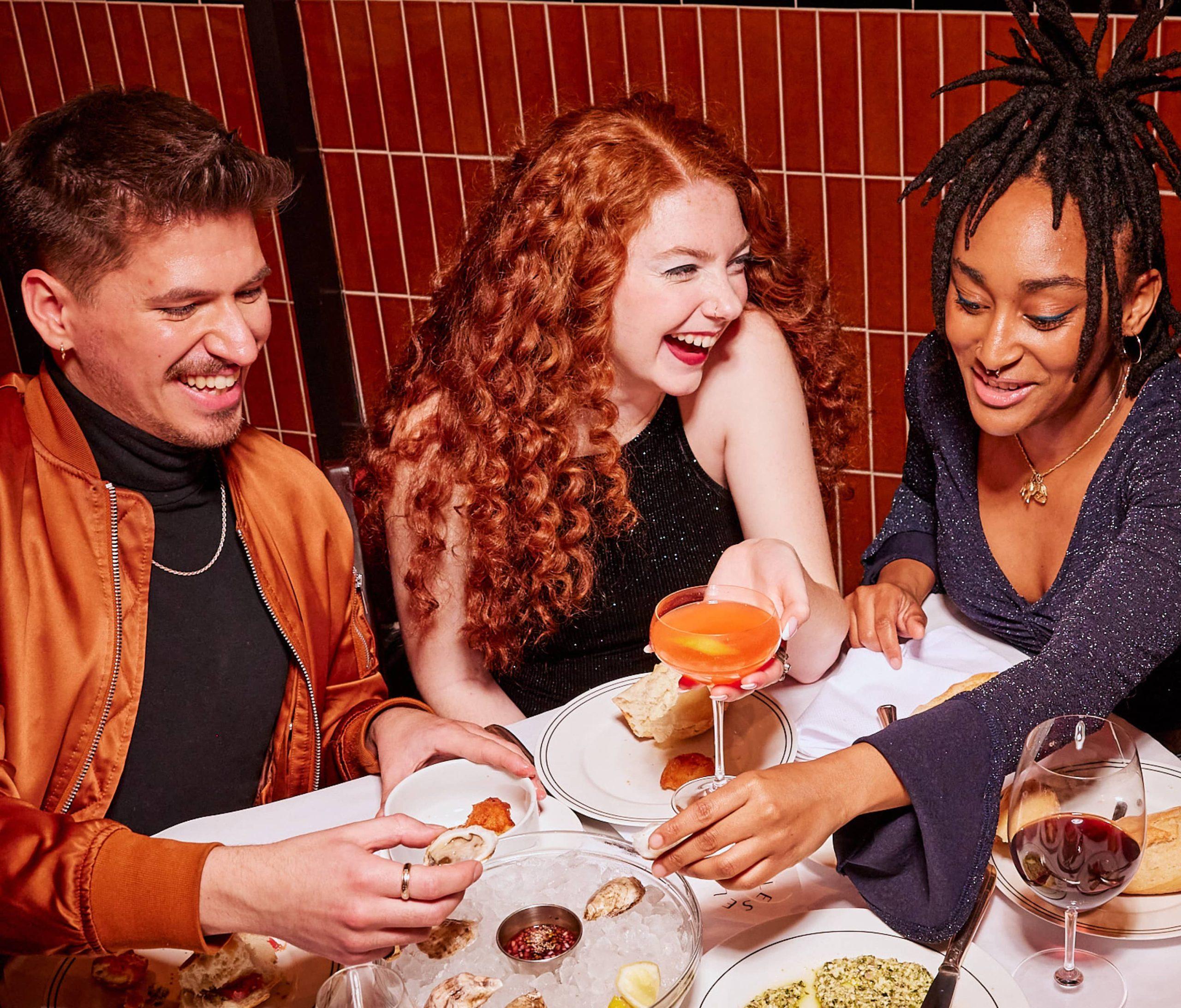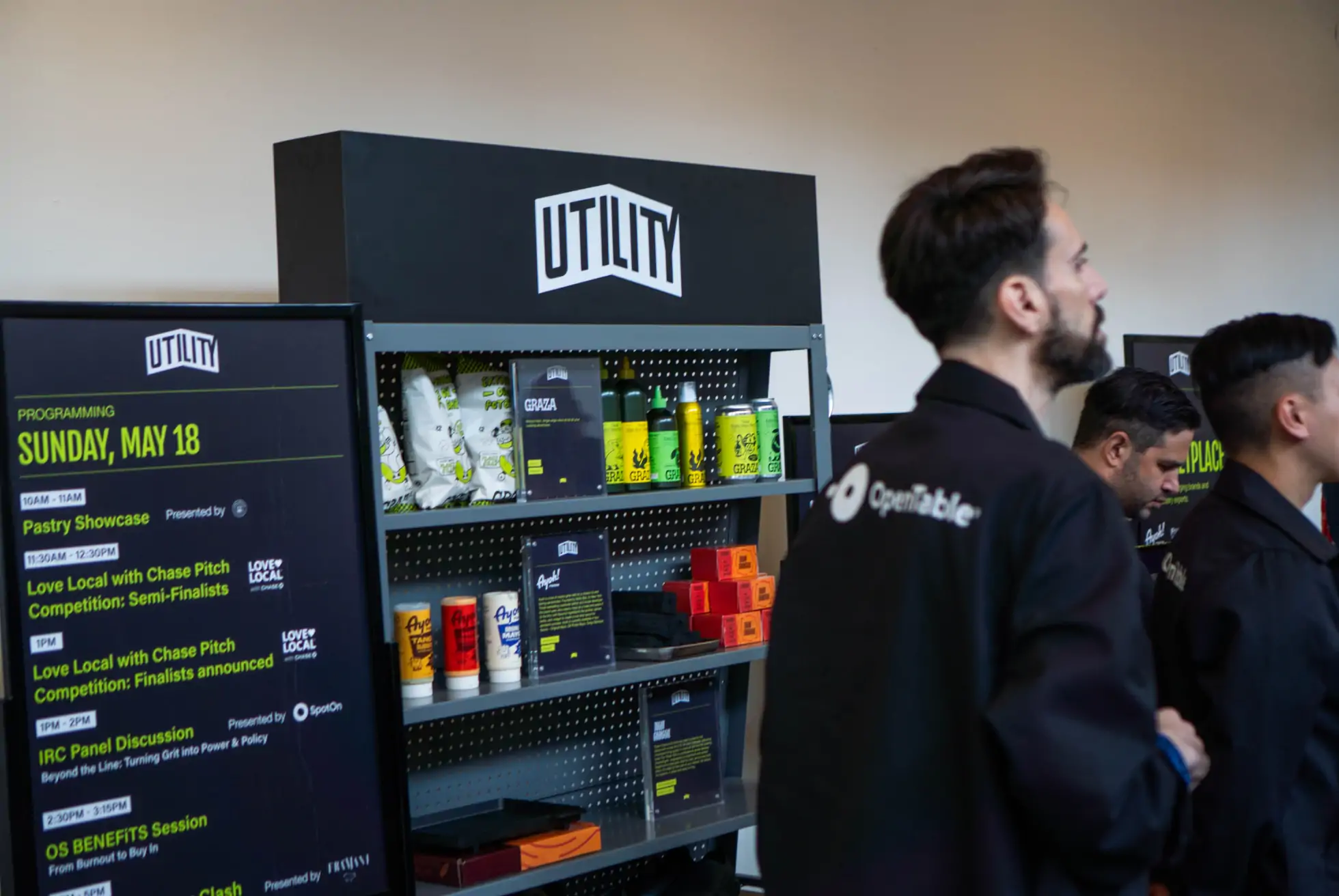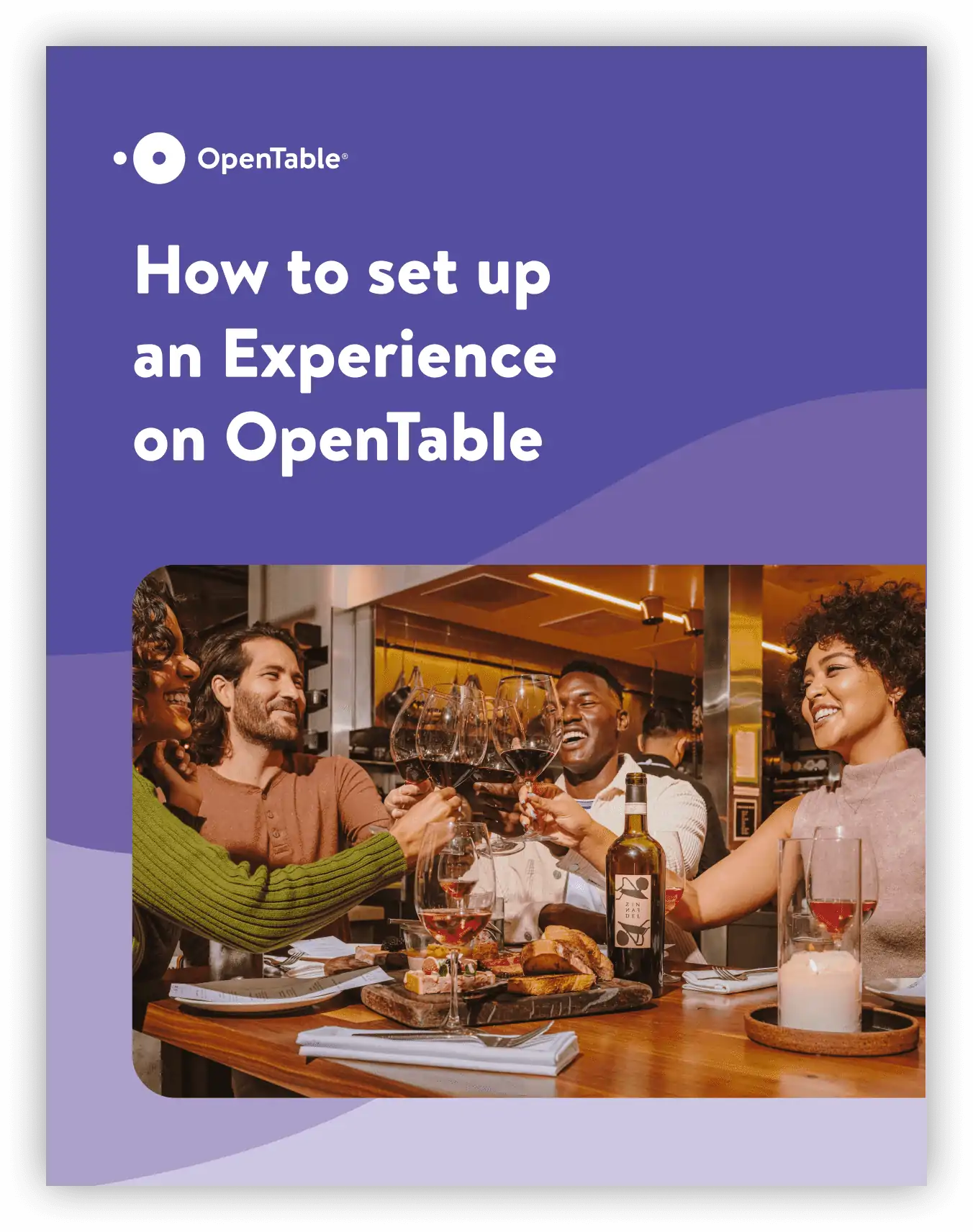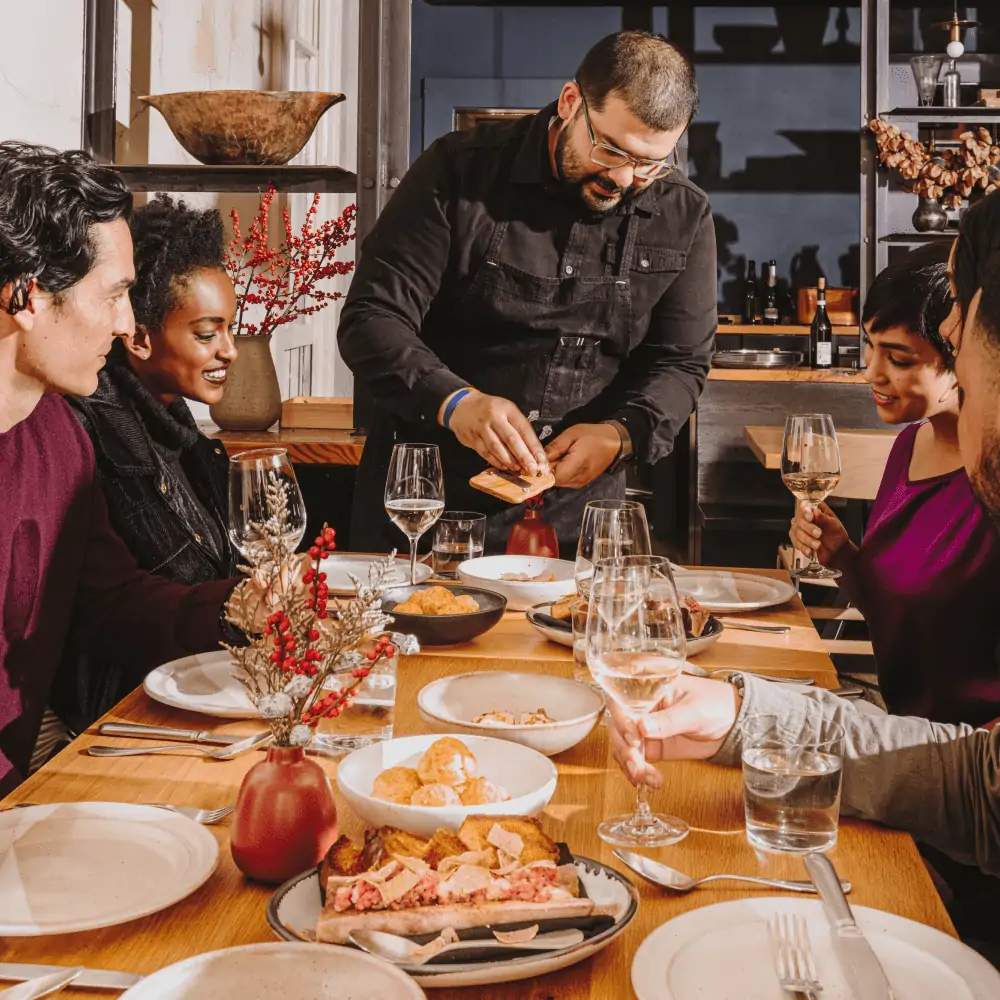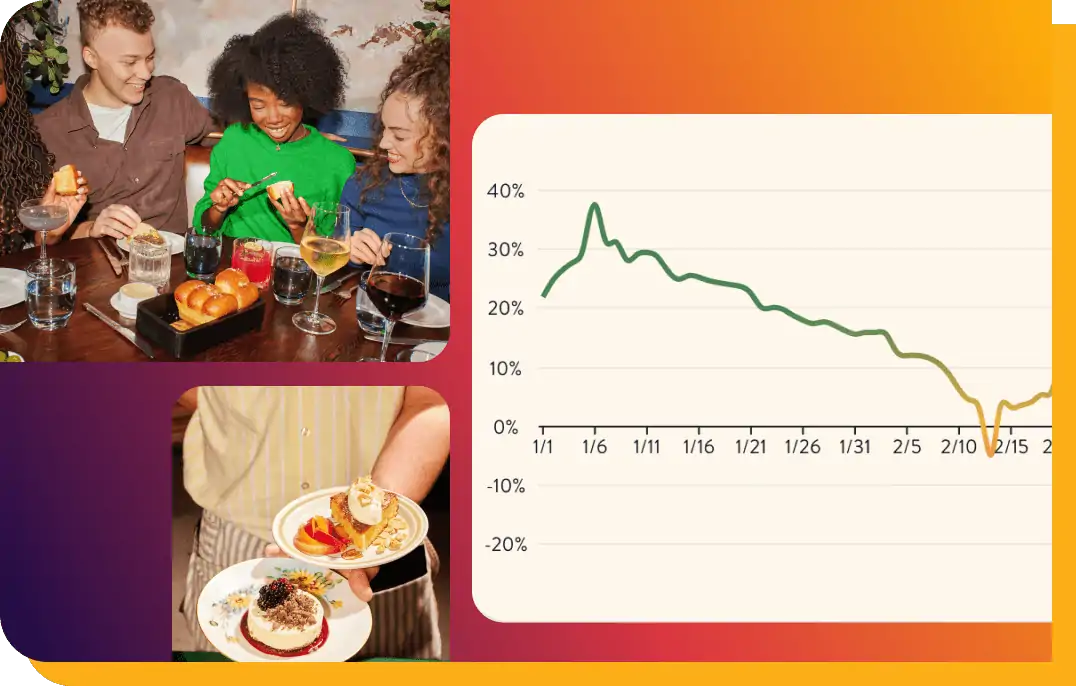This week, the OpenTable team had the chance to attend The Utility Show in Chicago, a refreshing, independent-minded alternative to the industry’s larger conferences. Rather than spotlighting flashy new gadgets and tech demos, the show focused on what matters most: the industry’s people.
The two-day event featured conversations with restaurant pros and was rooted in the day-to-day realities of working in hospitality. From passionate restaurant pitches to candid panel discussions, The Utility Show surfaced pressing industry challenges, like fair policy and mental health, along with what it takes to run and sustain a restaurant right now.
Here are five powerful themes that stood out this year:
1. Community comes first
The word “community” came up again and again during the show, underscoring that restaurants are far more than places to eat—they’re vital local ecosystems that encompass not only the staff and guests within their four walls, but also the broader neighborhood around them.
In sessions hosted by the Independent Restaurant Coalition (IRC) and Southern Smoke Foundation, panelists stressed the importance of open communication, mutual respect, and trust at every level of an operation. One recurring phrase stood out: “Give the respect you’d like to receive.” When restaurants invest in their people and treat their communities as partners, meaningful growth naturally follows.
2. Resilience isn’t optional
If there’s one thing the restaurants have proven, especially in recent years, it’s that they can handle almost anything. The pandemic reshaped how many restaurants operate, pushing them to adapt and get creative. Now, that kind of resilience is part of daily life in the kitchen.
But today’s industry leaders aren’t just reacting to change—they’re planning ahead, “building administrative resilience” as Zach Engel, chef/owner of Galit and Cafe Yaya, put it. That means building better systems, offering better support and benefits, and thinking long term. “Chefs aren’t just trying to win awards. They’re trying to provide for their teams,” said Engel.
That future-focused mindset matters now more than ever. Restaurants are managing a lot of uncertainty, and it’s a good thing chefs know how to stay strong and keep going. Resilience will help carry the whole industry forward.
3. The collective voice has power
On Sunday, Rick Bayless, chef/owner of Frontera Grill, Topolobampo, Bar Sotano, and Xoco, and Jason Hammel, chef/owner of Lula Cafe, recalled the energy—and impact—that came when countless independent restaurant operators joined together during the early weeks of the pandemic to advocate as a group for their needs in Washington. That collaboration effectively gave birth to the IRC, which continues to play a vital role in supporting the independent restaurant community.
The next day, Chris Shepherd put it simply: “When we’re in it together, it’s a little bit easier.” Fair policy, adequate funding, visibility for the industry—none of it happens if people don’t come together to advocate for change. There’s real power in showing up and speaking up as a collective.
Panelists on both days said that joining organizations like the IRC or getting involved with a local group is a great way to begin making a difference. Advocacy isn’t just nice to have, though. It’s a way to make sure restaurants aren’t left behind when decisions are being made—because when the industry speaks with a collective voice, change happens.
4. Mentorship matters
The advice from restaurateurs at the show was unanimous: if you want help, ask for it. Industry leaders reminded young chefs and operators in the audience that mentorship isn’t about hierarchy—it’s about connection. And eventually, mentorship even turns to friendship.
Pastry chef Caroline Schiff shared that most people are willing to mentor someone who is curious and genuine. She urged people in the audience to “be engaged, be inquisitive, and be excited.”
5. Restaurants need to take care of each other
Hospitality doesn’t stop at the table. From checking in on peers to supporting the next generation, restaurants must “build economies of care and connection,” according to Hammel. It’s that care for one another that will sustain restaurants through challenges and periods of uncertainty.
The belief that people remember how you make them feel came up throughout the restaurant pitches and sessions. That sentiment goes for your staff as much as your guests. Whether it’s covering a shift, checking in on someone who’s struggling, or being generous with your knowledge, small moments of care add up.
Final thoughts
One of the most memorable messages of the event came from Shepherd: “Leave the industry better than you found it—every day.” That simple, powerful approach is exactly what will shape the future of independent restaurants.
